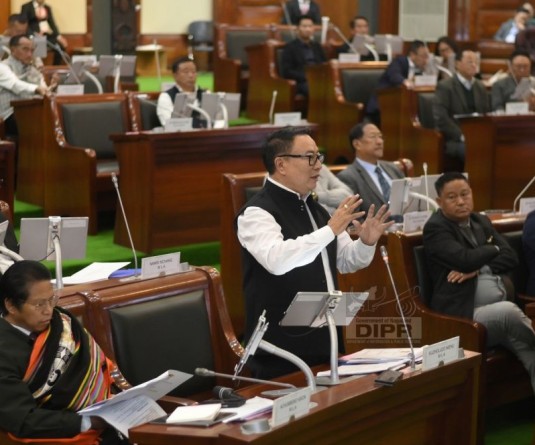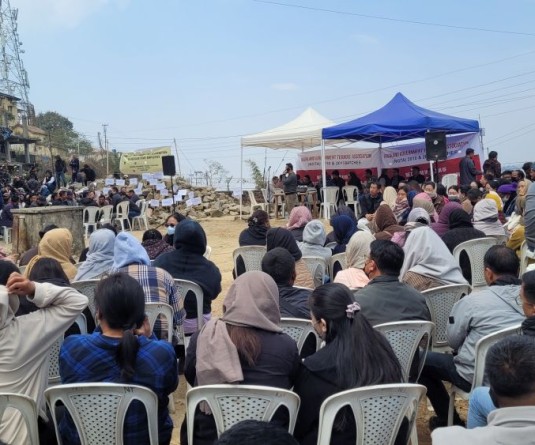Sovima villagers with the resource persons at the workshop on waste management jointly organized by the Tribal Welfare Society and NPCB on July 25. (Morung Photo)
.jpg)
Sovima villages envisages waste segregation
Morung Express News
Dimapur | July 25
A workshop on waste management was held in Sovima Village, Chümoukdima on July 24. The workshop, which also dealt with plastic waste vis-à-vis the ban on single plastic, was jointly organized by the Tribal Welfare Society and the Nagaland Pollution Control Board (NPCB) to raise awareness and initiate actionable steps towards a cleaner and sustainable environment.
The training session was helmed by resource persons from the Nagaland Pollution Control Board (NPCB) — Aghali A Swu, Environment Engineer and NPCB scientists Yanathung Kithan and Akangmeren Imchen. K Hukato Chishi, Member Secretary, NPCB, delivered the keynote address. According to him, waste management demands behavioural shift.
Waste management as a practice has yet to take off at a mass level in Nagaland. Nevertheless, he said that it is not something impossible. According to him, it needs individual behavioral change turning into a collective effort. “We can do it as citizens. We have to bring about behavioural change at the individual level,” he said, while encouraging citizens to take responsibility for their waste generation and disposal habits.
He applauded the progressive step taken by the Sovima Village Council in establishing a sanitation committee stating that it was the only village that he is aware of, which has taken such an initiative. Taking progressive measures, he said, would enable waste management practices strongly taking root and thereby, successful implementation of the ban on single-use plastic.
Aghali A Swu shed light on the detrimental effects of plastic on the environment and human health. Swu pointed out that plastic waste leaches harmful chemicals over time, infiltrating the food chain and ultimately posing a threat to life.
Moreover, improper plastic disposal leads to pollution in rivers and seas, endangering marine life and negatively impacting soil fertility, she said.
Citing data, she informed that globally, only 9% of plastic waste is recycled while a big chunk is incinerated, dumped in landfills or mismanaged. Given this, she stressed on the need to raise mass awareness and initiate action to tackle plastic pollution, including proper waste handling and segregation at source.
Sebastian Zumvu, the chairperson of Sovima Village Council, expressed his concerns about the lack of segregation at source in the village, urging the resource persons to enlighten the villagers on this crucial aspect of waste management.
He also shared his vision of setting up a rudimentary segregation plant in the coming months to tackle the issue effectively.
Zumvu noted Sovima’s healthy green cover and a standing ban on hunting, which has led to an increase in bird population. He appealed to the government of Nagaland to adopt Sovima as a model village, promising to work hand in hand to achieve this status.






